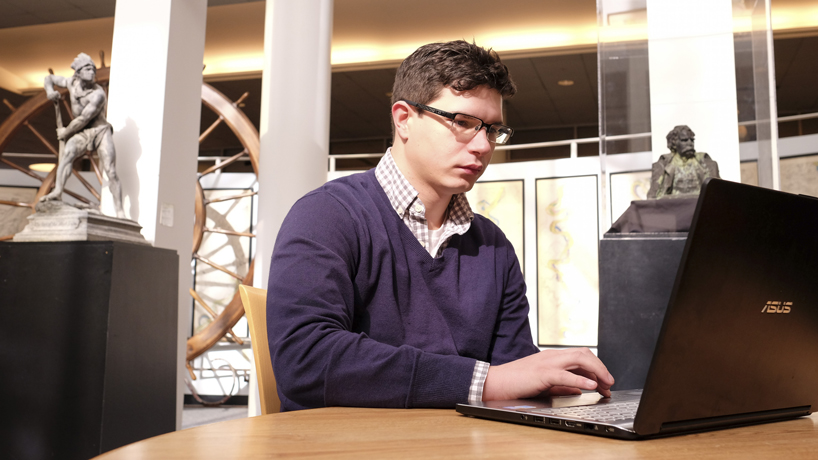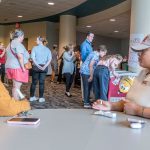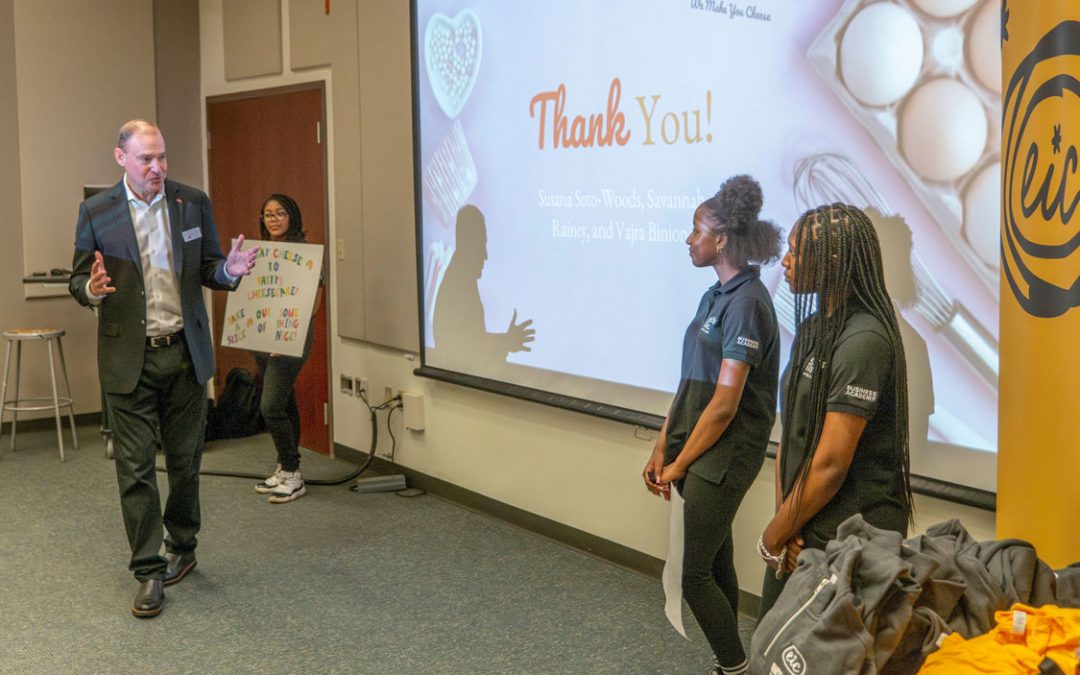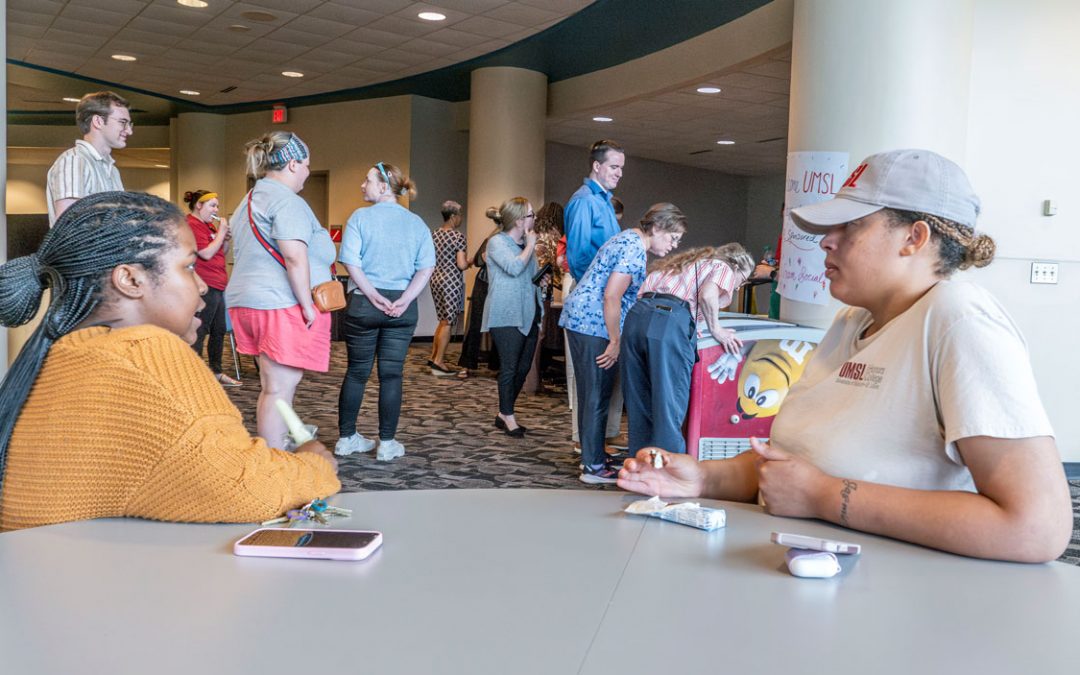
Economics major Hagen Montano was awarded an undergraduate research grant from the College of Arts and Sciences this spring. (Photo by August Jennewein)
Ask Hagen Montano about surveys, data or politics, and the University of Missouri–St. Louis upperclassman lights up.
“I love doing research,” said Montano, a quantitative economics major who spends a lot of time in the Economic Resource Center and bent over his laptop in the library. “Economics is everything – it’s not just about the economy, and it’s not just about money.”
Along with picking up minors in political science, mathematics and classical studies during his time at UMSL, Montano recently dove deep into research examining the relationship between the economy and U.S. voting trends. His project was made possible in part through a $1,000 research grant from the College of Arts and Sciences.
Hypothesizing that citizens’ perceptions of the economy directly relate to whether they head to the polls, Montano has been combing through reams of data from national surveys conducted during each general election between 1980 and 2012.
He’s currently in the analysis stage, but he expects his research will suggest people are more likely to vote when they are concerned about the health of the economy.
Montano first grew interested in conducting his in-depth study while enrolled in political analysis and “econometrics” courses at UMSL.
“It’s statistics on steroids,” Montano said of the latter, noting that the economics program places a strong emphasis on math and analysis.
Associate Professor of Political Science Brian Fogarty has served as a helpful guide for his investigation, enabling Montano to fine-tune its design.
“He’s been a great adviser and sounding board to bounce ideas off of – he does a lot of analysis,” Montano said. “This research is a chance to go out and try something and then fail and then learn how I could have done something different.”
Montano emphasized that perception is at the center of his inquiry, not necessarily the economic trends themselves.
“What you perceive – there’s a possibility that it doesn’t accurately reflect what is actually happening in the world, he said, adding that fear can be “the best advertising tool,” including when it comes to politics.
Montano said he hopes to publish his findings when his study is complete and use some of his remaining grant money toward a conference. After finishing his degree at UMSL, he hopes to head to graduate school and eventually become an economic adviser.
“This has been great preparation for real-world analysis,” Montano said.















